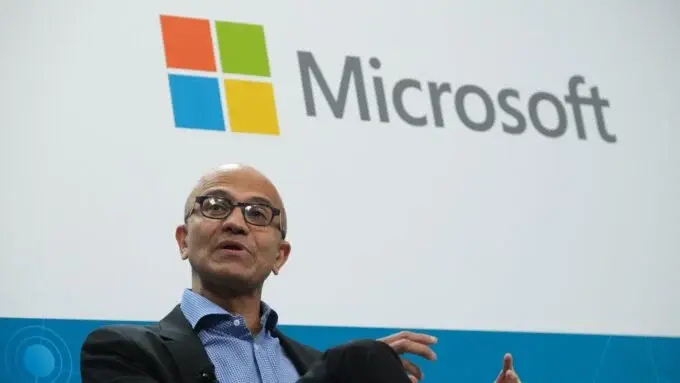"AI-Powered Productivity: Microsoft & Google Boost Features with Price Hikes – What You Need to Know!"
- Tech Brief

- Jan 20
- 4 min read

Microsoft and Google have recently integrated AI features into their productivity suites, leading to adjustments in subscription pricing. Below is a summary of articles detailing these developments, with links to the original sources:
1. Microsoft and Google Just Added AI to More Software. It Comes at a Cost.
Microsoft and Google have invested $99 billion in AI infrastructure over the past year and are now integrating AI features into their productivity suites. Google announced it would include its Gemini Business AI features free of charge in Google Workspace, but raised the overall subscription price by 17%, eliminating the option to opt-out. Microsoft followed suit, bundling its Copilot Pro AI features with Microsoft 365 packages, raising the subscription price by 43%, but allowing users to opt-out temporarily. Unlimited AI features remain priced at $240 annually. These changes suggest previous AI pricing strategies were not successful in attracting customers. Both companies aim to spread AI costs across their user base, hoping that users find value in the AI features to sustain their high-data center expenses. This new strategy marks a shift as they pursue business models to support the expensive scaling of AI services.
Barron's
2. Google is making AI in Gmail and Docs free — but raising the price of Workspace
Google has announced that it is making all AI features in its Workspace suite, including Gmail, Docs, Sheets, Meet, and other applications, available for free. Previously, users had to pay an additional $20 per user per month for these AI capabilities through the Gemini Business plan. However, the cost of standard Workspace plans is increasing by approximately $2 per user per month. Base subscription prices will now go from $12 to $14 a month. The AI features include email summaries in Gmail, automated spreadsheet and video designs, an automated note-taker for meetings, and the NotebookLM research assistant. Google aims to integrate AI deeply across its services to stay competitive with rivals like Microsoft and OpenAI. Jerry Dischler, Google's president of cloud applications, emphasizes that making AI features free removes cost-related barriers for companies, potentially stimulating broader use. This move mirrors similar actions by Microsoft, which integrated its Copilot Pro AI into standard Microsoft 365 subscriptions.
The Verge
3. Microsoft triples down on AI
Microsoft has made significant strides in its AI initiatives, marked by three major announcements this week. First, it established a new AI engineering group called CoreAI - Platform and Tools, headed by Jay Parikh, to integrate its developer division and AI platform teams. Second, it introduced pay-as-you-go agents for its revamped Copilot Chat for businesses. Lastly, Microsoft bundled AI Office features into Microsoft 365 for consumers with a subscription price increase. These moves align with Microsoft's enhanced focus on AI, aiming to embed AI capabilities deeply within its tools, platforms, and services. CEO Satya Nadella emphasized that AI is transforming software development, with a vision for AI agents to automate and build custom applications. Despite employee concerns about AI replacing engineering roles, Microsoft is heavily invested in creating new revenue opportunities in AI. Microsoft is also facing competition from Google, which is incorporating AI features into its Workspace app at no extra cost. This competitiveness will likely push Microsoft to further innovate and find ways to incentivize businesses to adopt its AI solutions.
The Verge
4. Microsoft follows Google with price bump, forced AI 365 bundles
Microsoft 365 is getting a $3-per-month price increase for Copilot AI tools. Existing subscribers can opt out, but only for a limited time. Two days ago, Google announced that it was doing away with a separate upcharge for its Gemini AI features in Workspace and forcing you to pay for it instead whether you want AI or not. Today, Microsoft is following suit, raising prices for its Microsoft 365 packages by $3 per month and bundling in some Copilot AI tools to justify the bump. In the announcement post, Microsoft says that the price of Microsoft 365 will be rising from $7 to $10 per month for Personal subscribers and $10 to $13 per month for the Family bundle. Per-year prices will be rising from $70 to $100 (Personal) and $100 to $130 (Family). What do you get for that 42 percent jump in price at the lowest tier? Access to Copilot-powered text generation, formatting, and queries in Word, Excel, PowerPoint, Outlook, and OneNote, plus AI-generated images and editing in OneNote. You won’t have unlimited use of these tools, by the way. You get 60 “AI credits” per month, and they can’t be banked or rolled over. Copilot Pro, which costs an additional $20 per month on top of existing 365 plans, is currently the only way to get “extensive usage.” (Presumably that means unlimited credits since it isn’t enumerated.) Existing users won’t see the price increase until the next billing cycle, but new users get it right away. If you’re an existing subscriber and don’t want the new features, you can switch to “Classic” versions of these plans ($7 per month for 365 Personal and $10 per month for 365 Family) by jumping through several hoops. The option to manually switch to a Classic plan will only be available “for a limited time.” It’s hard to interpret this don’t-call-it-a-price-increase upsell as anything other than a forced integration of AI, just like Google’s recent move. The market has shown that people aren’t buying new PCs to get AI, and it would seem that they aren’t interested in expensive add-on packages like Copilot. So both companies are resorting to inserting their AI infrastructures into existing products and charging more. I can’t see it as a popular solution for anyone except shareholders… and maybe not even them, if these companies can’t show that removing consumers’ choices results in increased profits.
PCWorld

Comments